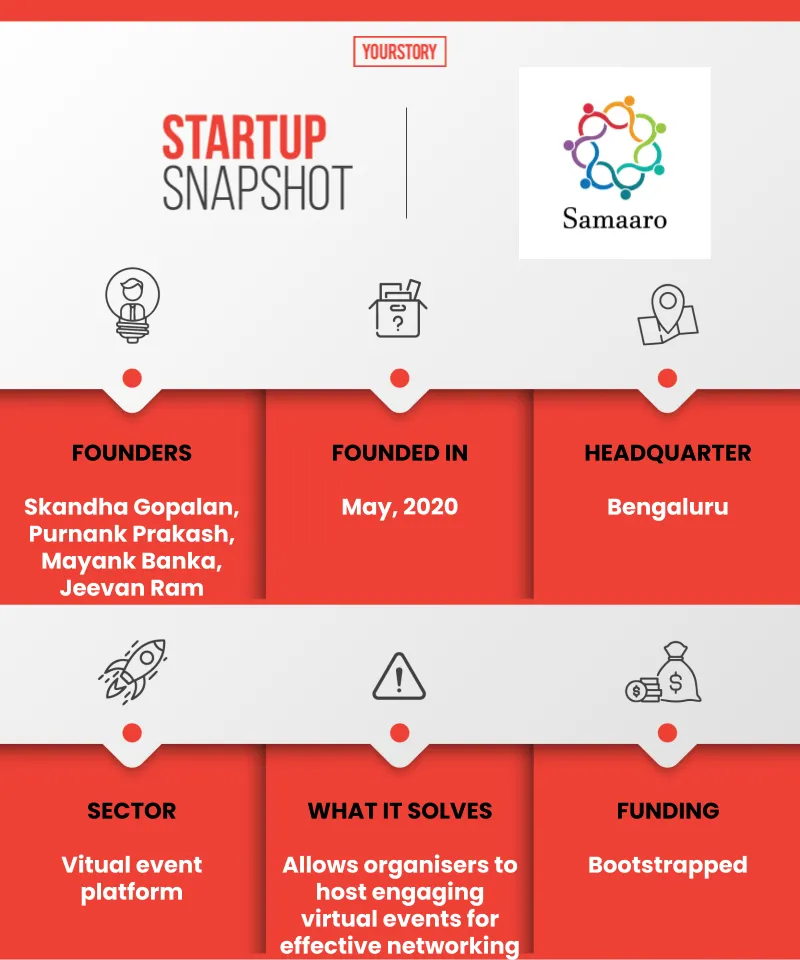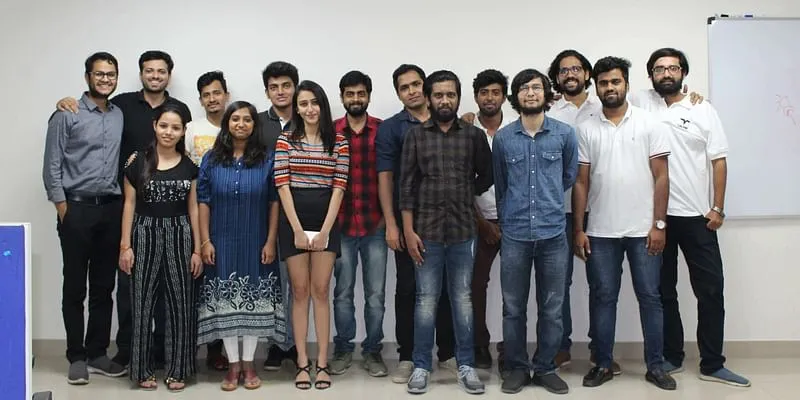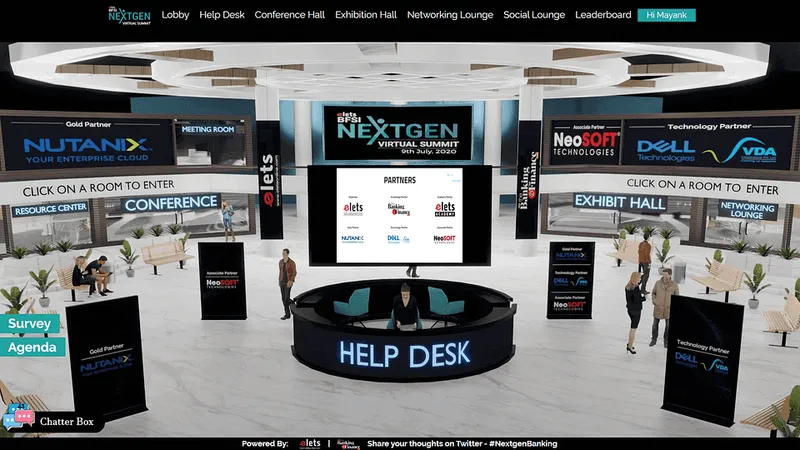[Tech30] How virtual event platform Samaaro managed 100 pc CRR within five months of its launch
Tech30 startup Samaaro allows organisations to host virtual events with unlimited users. The Bengaluru-based platform has already recorded AMR of $15,000.
Virtual is the new normal. With the pandemic throwing all in-person events to a halt, physical events seem like a far-fetched dream for now. Organisations and businesses are now depending on virtual event platforms to reach their target audience and make them feel connected. However, it is no secret that these virtual events lack the intimacy of in-person meetings and events.
This is where Samaaro steps in. Developed by Bengaluru-based Tacnik, Samaaro, launched in May this year, is a virtual event platform, which allows organisations and community managers to host engaging virtual events for effective networking.
“Available platforms provide ineffective networking and abysmal engagement options that leave most organisers and attendees unsatisfied,” Skandha Gopalan, Co-founder, Director and CMO of Samaaro, tells YourStory.
Samaaro, which has made it to YourStory’s Tech30 list this year, already claims to be generating average monthly revenue (AMR) of $15,000 with 100 percent customer retention rate.

Illustration courtesy: YS Design
Meet the team
Tacnik was incorporated in 2016 by co-founders Skandha (31), Purnank Prakash (28), Mayank Banka (29), and Jeevan Ram (30).
“We are avid gamers with a passion for technology and entrepreneurship,” Skandha says. The four co-founders quit their previous jobs and invested Rs 15 lakh to start Tacnik as a gaming company.
Tacnik initially offered game development services and gaming gadgets on rent. The startup pivoted its business model in 2017 to work on its next product.
Once the $1 trillion global events industry came to a standstill, team Tacnik worked on the idea for three to four weeks. Skandha says, “We created a platform keeping the two essence of a great event in mind -- engagement and networking.”

Founders of Samaaro: Mayank Banka, Purnank Prakash, Jeevan Ram and Skandha Gopalan (L-R)
Purnank, Mayank, and Jeevan are engineers from NIT Trichy. They were introduced to Skandha, an alumnus of BITS Pilani, through a mutual friend in Cisco, where Skandha earlier worked as a Software Engineer.
Prior to starting up, Purnank worked as a Product Engineer at SAP Labs. Mayank’s last role was that of Business Analyst at Souq, and Jeevan was the Operations Executive at Reliance.
The name Samaaro has its origin in Sanskrit, which means ‘To get together’. “Since we were creating a platform and an ecosystem where people would communicate, engage, and network, we felt this was apt,” Skandha says.
At present, Samaaro employs 18 people. It also hires freelancers and agencies whenever required.

Team at Samaaro
Automated operations
Samaaro uses marketing automation and analytics tools to understand its clients better and nurture them.
Once the startup receives a lead, it is fed on the platform’s CRM system. “This is where our sales funnel takes them through their defined customer journey,” Skandha explains.
When a lead becomes a deal by providing project requirements, the team assigns a dedicated sales representative to take it forward and ultimately close the deal. Further, once the deal is confirmed, an account manager is assigned to ensure the smooth execution of the event from beginning to end.
“The account manager coordinates with the product team to convey the deliverables such as the features, spaces, and other customisations of the platform,” Skandha says.
The product team works on the deliverables and updates the account manager periodically, who in-turn updates the client about the progress. Before the final event, team Samaaro also performs tests to ensure the platform is robust and matches the requirements of the client. Once approved, the event goes live.

Case study of a virtual event | Image Source: Samaaro
Road to success
Samaaro mostly targets fairs, exhibitions, and trade show event organisers in India. It has been using platforms like LinkedIn and has been implementing PR strategies to create brand identity in the market.
“Our Tacnik client base were our initial customers for Samaaro. We have also used our existing clientele to reel in more clients using word of mouth and referrals,” Skandha says.
Some of its prominent clients include Informa Markets, Wizcraft, Bucketlist, and Maximum Brand Services.
However, the journey was not a cakewalk. Initially, the team had to face challenges in terms of getting the infrastructure right. Its first virtual event was for 500 users. Today, it can host unlimited users on the platform for a single event.

Case study of a virtual event organised by Samaaro | Image Source: Samaaro
“Another major pain point was to host intricate events quickly. Clients wanted a 3D virtual arena on demand to easily host immersive events without our intervention,” Skandha says. The startup is overcoming this problem by automating the platform and creating booths, lobbies and other available spaces.
Samaaro generates revenue through a subscription model. Organisers can either pay per event, opt for a monthly subscription or annual subscription. Besides this, it also charges a commission on paid event tickets. Going ahead, it plans to generate revenue through advertising.
Samaaro is targeting revenue of $1.5 million for next year.
Virtual meeting market
According to Grandview Research, the global virtual events market size was valued at $77.98 billion in 2019 and is expected to grow at a CAGR of 23.3 percent between 2020 and 2027.
Some of the other virtual event platforms in India are EventXtra, Hubilo, Airmeet, and Floor, among others. Other global players making virtual meetings possible are Zoom, Microsoft Teams, and LinkedIn Live.
However, Skandha believes Samaaro has a differentiator to offer. “Our aim is to create an ecosystem where users attend events based on their interests -- connect with people based on similar interests from across the globe and host events for their own community,” he adds.
Going forward, the startup plans to refine its product further by adding more features and automating it completely. Bootstrapped since its inception, Samaaro plans to raise funds in the next two months.
Edited by Megha Reddy


![[Tech30] How virtual event platform Samaaro managed 100 pc CRR within five months of its launch](https://images.yourstory.com/cs/2/3fb20ae02dc911e9af58c17e6cc3d915/samaaro-1603457641041.png?mode=crop&crop=faces&ar=2%3A1&format=auto&w=1920&q=75)






